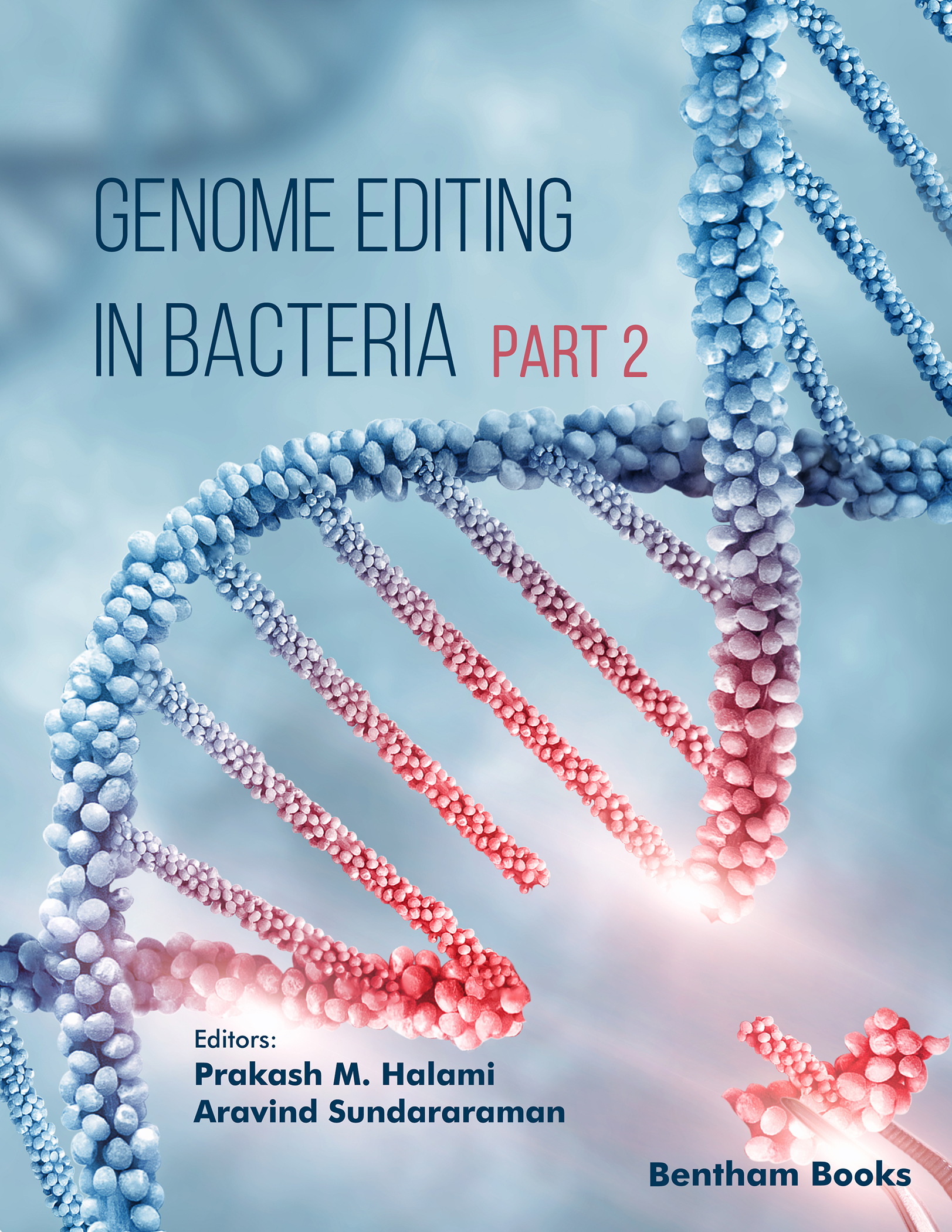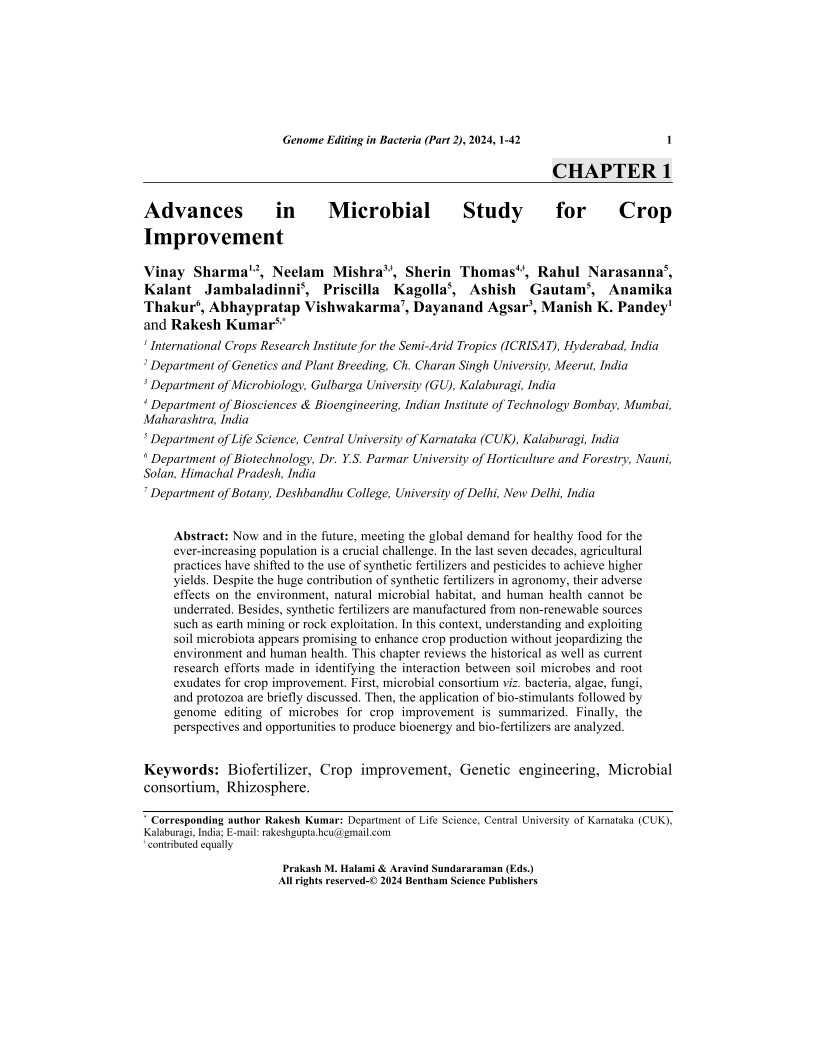Advances in Microbial Study for Crop Improvement

- Authors: Vinay Sharma1, Neelam Mishra2, Sherin Thomas3, Rahul Narasanna4, Kalant Jambaladinni5, Priscilla Kagolla6, Ashish Gautam7, Anamika Thakur8, Abhaypratap Vishwakarma9, Dayanand Agsar10, Manish K. Pandey11, Rakesh Kumar12
-
View Affiliations Hide Affiliations1 International Crops Research Institute for the Semi Arid Tropics (ICRISAT), Hyderabad, India 2 Department of Microbiology, Gulbarga University (GU), Kalaburagi, India 3 Department of Biosciences & Bioengineering, Indian Institute of Technology Bombay, Mumbai, Maharashtra, India 4 Department of Life Science, Central University of Karnataka (CUK), Kalaburagi, India 5 Department of Life Science, Central University of Karnataka (CUK), Kalaburagi, India 6 Department of Life Science, Central University of Karnataka (CUK), Kalaburagi, India 7 Department of Life Science, Central University of Karnataka (CUK), Kalaburagi, India 8 Department of Biotechnology, Dr. Y.S. Parmar University of Horticulture and Forestry, Nauni, Solan, Himachal Pradesh, India 9 Department of Botany, Deshbandhu College, University of Delhi, New Delhi, India 10 Department of Microbiology, Gulbarga University (GU), Kalaburagi, India 11 International Crops Research Institute for the Semi-Arid Tropics (ICRISAT), Hyderabad, India 12 Department of Life Science, Central University of Karnataka (CUK), Kalaburagi, India
- Source: Genome Editing in Bacteria (Part 2) , pp 1-42
- Publication Date: April 2024
- Language: English
Advances in Microbial Study for Crop Improvement, Page 1 of 1
< Previous page | Next page > /docserver/preview/fulltext/9789815223798/chapter-1-1.gif
Now and in the future, meeting the global demand for healthy food for the ever-increasing population is a crucial challenge. In the last seven decades, agricultural practices have shifted to the use of synthetic fertilizers and pesticides to achieve higher yields. Despite the huge contribution of synthetic fertilizers in agronomy, their adverse effects on the environment, natural microbial habitat, and human health cannot be underrated. Besides, synthetic fertilizers are manufactured from non-renewable sources such as earth mining or rock exploitation. In this context, understanding and exploiting soil microbiota appears promising to enhance crop production without jeopardizing the environment and human health. This chapter reviews the historical as well as current research efforts made in identifying the interaction between soil microbes and root exudates for crop improvement. First, microbial consortium viz. bacteria, algae, fungi, and protozoa are briefly discussed. Then, the application of bio-stimulants followed by genome editing of microbes for crop improvement is summarized. Finally, the perspectives and opportunities to produce bioenergy and bio-fertilizers are analyzed.
-
From This Site
/content/books/9789815223798.chapter-1dcterms_subject,pub_keyword-contentType:Journal -contentType:Figure -contentType:Table -contentType:SupplementaryData105

